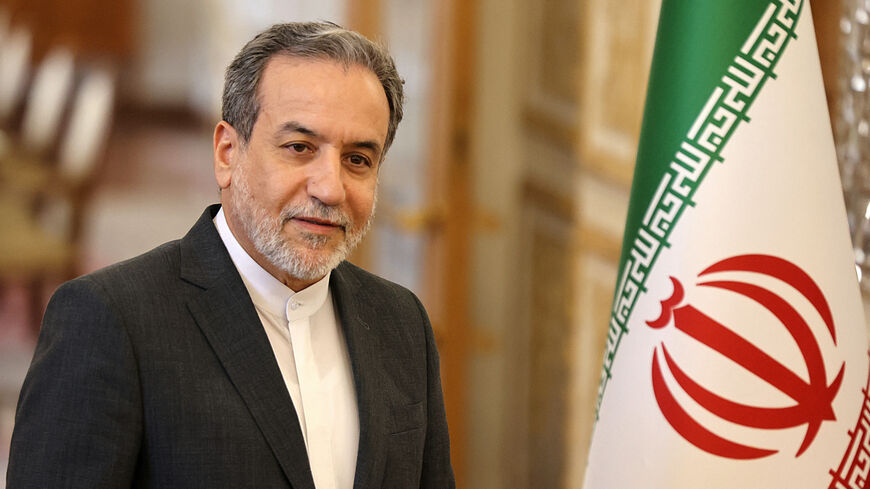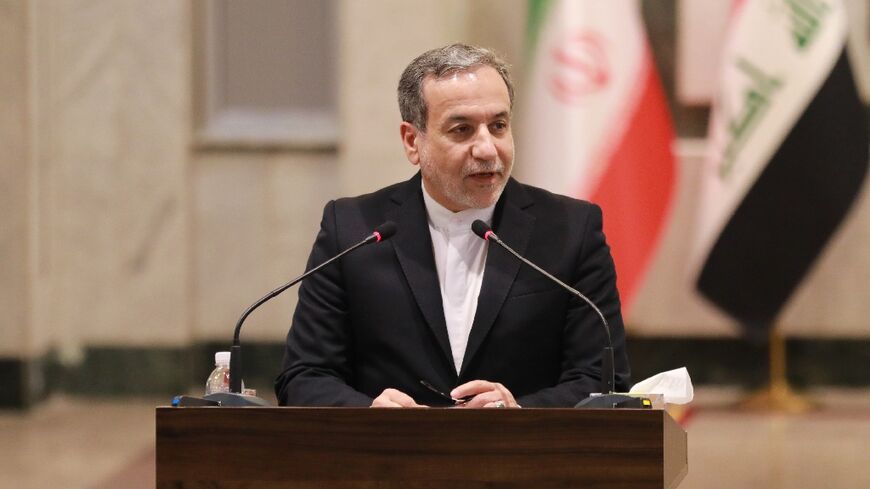Iran says 'no grounds' for indirect talks with US

Iran said Monday it currently sees "no grounds" for its indirect talks with the United States via intermediary Oman, citing the crisis in the Middle East.
In June, Tehran said it had engaged in indirect talks with Washington via Muscat, despite the two countries having no diplomatic relations.
US news website Axios reported at the time that officials from Iran and the United States held indirect talks in Oman "on how to avoid escalating regional attacks".
On Monday, Iran's Foreign Minister Abbas Araghchi visited the Gulf sultanate as part of a regional tour in which he met allies and Middle East powers after Israel vowed to retaliate against Tehran's recent missile attack.
"Currently, we don't see any grounds for these talks, until we can get past the current crisis," Araghchi told reporters in Muscat.
The talks, he said, had been halted "due to the specific conditions of the region".
Iran fired 200 missiles at Israel on October 1 in what it said was retaliation for the killing of Tehran-aligned militant leaders in the region and a general in Iran's Revolutionary Guards.
Israel has vowed to respond.
Oman has long mediated between Iran and the United States, which cut ties after the 1979 Islamic revolution.
In Muscat, Araghchi met Mohammed Abdel Salam, a senior official of the Tehran-backed Huthi rebels in Yemen.
The Huthis, alongside Hezbollah, Hamas and others, are part of the so-called axis of resistance of Iran-backed, anti-Israel armed groups.
The United States is Israel's close ally and by far its largest provider of military assistance.
Araghchi also held talks with his Omani counterpart Badr Albusaidi over the developments in Lebanon and Gaza, and called for an "immediate end" to the conflict, said Iran's foreign ministry spokesman Esmail Baghaei.
Oman's foreign ministry said the two officials agreed on "harnessing diplomacy as an essential tool for resolving disputes and conflicts" in the region.
While in Oman, Araghchi spoke on the phone with his Chinese counterpart Wang Yi.
Araghchi slammed what he called US obstruction of the United Nations Security Council in relation to the wars in Lebanon and Gaza as "a disaster" during the call.
China is a permanent member of the council.
Before arriving in Oman, Araghchi was in Baghdad for talks with Iraqi officials.
Last week, he visited Qatar and Saudi Arabia where talks mainly revolved around establishing a ceasefire in Lebanon and Gaza as well as ways to contain the conflict.






